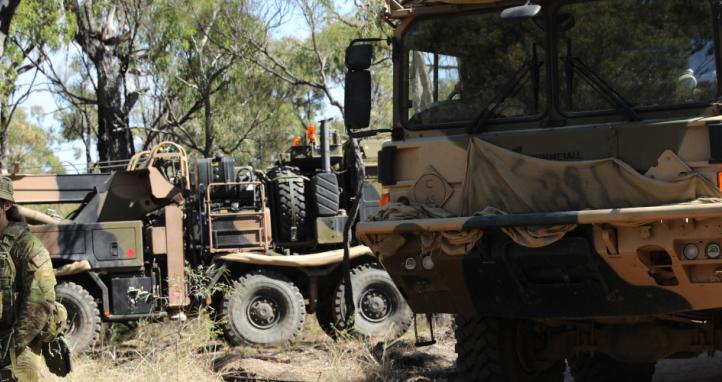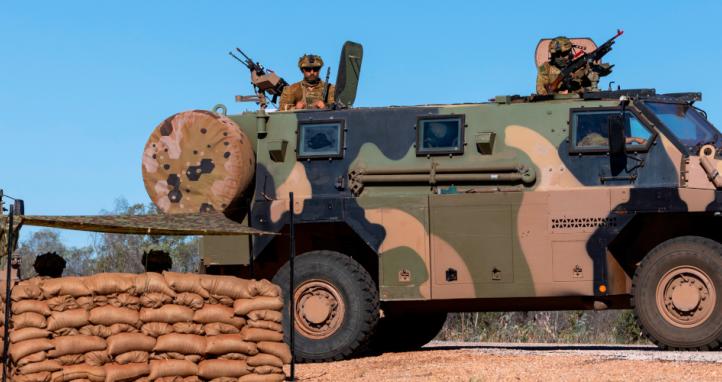‘A bystander is anyone involved in or becomes aware of an incident or situation that is a serious contravention to our values, has an adverse impact on morale, wellbeing or discipline or which compromises Army’s reputation or capability. A bystander is neither the perpetrator, nor a victim. A bystander can also be a member of a peer group who is not present at the time of an incident, but who is nonetheless a friend or team member, associated with the person involved and who fails to report an incident once they become aware of its gravity.’ – CA Directive 03/21 Bystander Behaviour
This article is not written to encourage bystander behaviour, rather the opposite. It aims to abash those who seek to silence those who speak out. To eliminate the need for bystanders to have to speak up. This should ultimately be the goal of the recently issued Chief of Army's Directive 03-21 on bystander behaviour. So now is perhaps the best time for each of us to internally reflect on how we operate, particularly as part of Army’s leadership group. We are the men and women that lead the Army. The ones that enact the Chief of Army’s plan for a better Army. A plan that seeks to build capability and reputation rather than destroy it, so that we are best placed to fight the next war. This is about capability; yet culture plays a central role.
The assumption is that our Army is built with good people who want to serve their nation and each other. These good people live their lives in good ways. They are good to their workmates; good to their family and friends. Their conduct is moral, legal and above reproach. They make ethical decisions always; they speak the truth and are selfless. Unfortunately this assumption is wrong and we have grown acutely aware of this in recent times.
Our Army is built within a sub-section of Australian society. That society was built on colonialism: the practice of economically exploiting a country; and in the case of Australia, convicts were used as the workforce to do so. We are a product of our environment. Our Army is built with a society that was built with convicts. This doesn’t make our society bad. It makes our society human; and that humanity makes our Army fallible.
With an Army built off humanity, is it a surprise that we can occasionally get the balance between good and bad wrong? The deviance of standards is not a new concept for Army. LTGEN Morrison spoke about it in 2013 with the introduction of ‘Respect’ as an Army value. Yet we continue to have people who knowingly do the wrong thing. People who build toxic cultures within their organisations; building up those around them in an elite, exclusive group while they ostracise those who oppose popular view. We are a product of our environment and we foster environments we feel comfortable in. LTGEN Morrison put it aptly when he said 'Cultural problems are just that; they are systemic and ingrained, not the work of a few rogues'. Is it possible that we as an Army have been in a degenerative spiral for some time?
We cannot improve as an organisation if we are not open to self-reflective, constructive criticism. There remains a fine line in Army between having the moral courage to speak up, and committing career suicide. We naturally tend to place those who are like us into in groups and those individuals benefit with career success. We are a product of our environment and we create environments that build products like ourselves. Those who are different or challenge the status quo are often excluded, or forced out, whereas perhaps they are the ones that bring the most value to the organisation. If we truly value diversity in the Army, then we should encourage cognitive diversity and allow people the opportunity to challenge the status-quo. This may give us the intellectual edge we need in combat.
The intent behind reducing bystander behaviour, I believe, is to change the balance of power to ensure that the majority sits with those who are good. Those who are bad thereby become the minority. The bystander no longer has a reason to exist. They no longer have to call out those who do wrong. The bystander is no longer the anomaly. No longer working against a systemic and ingrained problem. The bystander becomes extinct.
The Australian Army becomes the organisation it should have always been. An elite group of exceptional individuals who treats everyone with respect and are truly above reproach. They encourage diverse thought to harness the full creative potential of the workforce. They build positive, reinforcing culture which embraces difference. Those who don’t are forced to comply with the direction of the good or risk being expelled from the group. This is no different to the original scenario; but the values with which the majority makes decisions, have changed. Ethical decision making is restored. This separates us from our enemies. This is culture change in motion.
So now is the time to pick which party you want to be a part of. Culture change is not coming. It is happening. It has been for the past ten years and it will continue. Change is our only constant. This is just the next step in our reformation as a reputable and ethical army. Become a part of the solution or be left behind. Encourage diverse thinking. Nurture ethical leaders. Create an environment where bystanders no longer need to exist. In doing so, the next generation of Army will become a product of their environment. Army is recognised as an ethical, moral, lethal and reputable land force capable of defending Australia’s national interests. As it should be.










Have faith, have heart and know we love you. Don’t get down and know that the real good soldiers are like you and the ones that win with ME in the end. Don’t let them think it’s 10 years away, I. I. I. I. I I I I Kerrie Gelb Pullen is the I in this country. THE VOICE. THE I IN COVE. WE ARE THE UPSTANDING GOOD. IN GOD WE TRUST